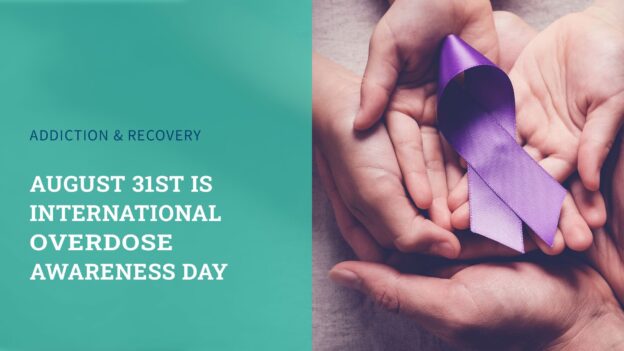International Overdose Awareness Day
International Overdose Awareness Day, observed on August 31st each year, is a global event that aims to raise awareness about the devastating impact of drug overdoses. Also, this important day helps to reduce the stigma surrounding addiction. This day serves as a reminder of the urgent need to address the prevalence of addiction overdose in society and to promote strategies for prevention and intervention.
The Prevalence of Addiction Overdose
Addiction overdose is a critical public health issue that affects individuals, families, and communities worldwide. The World Drug Report by the United Nations Office on Drugs and Crime highlights that roughly 585,000 people died due to drug use disorders in 2017 alone. Increasingly, the misuse of opioids, such as prescription pain relievers and heroin, have contributed significantly to the rise in overdose deaths. In the United States, the Centers for Disease Control and Prevention reported over 93,000 drug overdose deaths in 2020. The staggering increase in these numbers is driven primarily by opioid-related overdoses.
Understanding the Causes
Addiction overdose occurs when an individual consumes a substance in excessive amounts. By doing so, this overwhelms the body’s ability to metabolize and process it. Factors contributing to overdose include:
- Tolerance and Dependence: Prolonged use of certain substances can lead to tolerance, where higher doses are needed to achieve the same effects, increasing the risk of overdose.
- Mixing Substances: Combining drugs or alcohol can have synergistic effects, intensifying the risk of overdose.
- Lack of Awareness: Insufficient knowledge about the potency and potential interactions of substances can lead to accidental overdoses.
- Unpredictable Purity: Illicit drugs may vary in purity and potency, making it difficult for users to gauge appropriate doses.
Preventing Overdose
Preventing addiction overdose requires a multi-faceted approach that addresses both individual behavior and systemic factors. Here are some key strategies:
- Education: Raising awareness about the signs of overdose, safe usage practices, and the importance of seeking help can empower individuals to make informed decisions.
- Access to Naloxone: Naloxone is a medication that can rapidly reverse opioid overdoses and save lives. Widening access to naloxone for both medical professionals and the public is crucial.
- Treatment and Rehabilitation: Providing comprehensive addiction treatment and rehabilitation services can help individuals break the cycle of dependence. By working to severe the chemical dependence, we can reduce the risk of overdose.
- Medication-Assisted Treatment (MAT): MAT combines behavioral therapy with medications to treat substance use disorders. It can help manage cravings and withdrawal symptoms, reducing the likelihood of overdose.
- Support Networks: Creating supportive environments and fostering strong social connections can provide individuals with the emotional and psychological resources needed to overcome addiction.
- Policies and Legislation: Governments and regulatory bodies play a vital role in implementing policies that curb the availability of illicit substances, while also promoting harm reduction strategies.
Reducing Stigma
The stigma associated with addiction often prevents individuals from seeking help and support. International Overdose Awareness Day aims to challenge this stigma and foster compassion and understanding towards those struggling with addiction. Addiction is a a complex medical condition, and not a moral failing. By learning more, society can encourage individuals to seek assistance without fear of judgment.
International Overdose Awareness Day serves as a powerful reminder that addiction overdose is a global crisis that demands immediate attention. By increasing education, promoting prevention strategies, and reducing stigma, we can cultivate a world where individuals struggling with addiction can get the support they need. Lives are saved, and communities are strengthened in the face of this devastating challenge. If you or someone you know is struggling with addiction and wants to learn more about our program, call 800.556.2966!
Written by Jennifer Lopes, BS Psy






